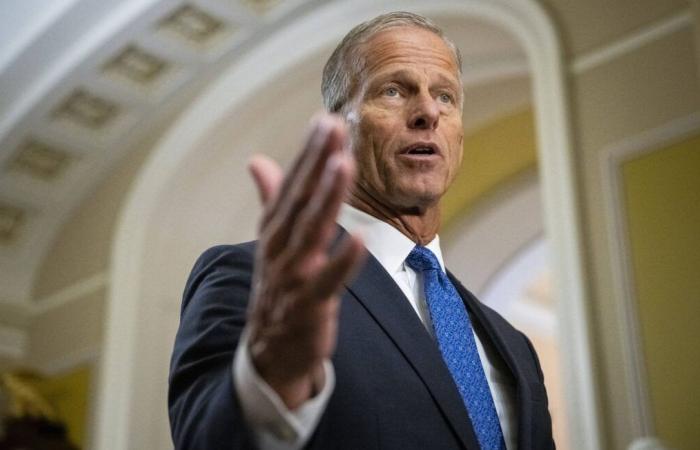John Thune, Republican senator from South Dakota, was elected Wednesday to lead the Senate Republicans, succeeding Mitch McConnell, who held the position for 17 years. John Thune beat Rick Scott, although supported by Donald Trump, in a secret ballot. Calling himself “extremely honored,” he said the Republican team was “united behind President Trump’s agenda” and their work begins “starting today.” Also supporting Rick Scott, Elon Musk welcomed the senator’s victory.
As the new Republican majority leader in the Senate, John Thune will have to work with Donald Trump, known for demanding absolute loyalty, while leading the Republicans in their new majority configuration after the November elections.
The end of the McConnell era
The election of John Thune marks above all the end of the reign of Mitch McConnell, nicknamed the “Gravedigger”, a master strategist known for his ability to block Democratic initiatives and promote a conservative program. At the head of the Republicans since 2007, Mitch McConnell played a key role in the appointment of conservative judges to the Supreme Court, whose decisions have upended historic rights such as abortion.
In recent years, he has also distinguished himself as a staunch defender of American aid to Ukraine, despite the growing reluctance of isolationist Republicans influenced by Donald Trump. John Thune, who also supported this funding, has not yet indicated whether he will continue on this path under the Trump presidency.
Questions about McConnell’s health
At 63, John Thune thus embodies a transition within the Republicans, although he remains anchored in a traditional line. His ability to deal with Trumpist forces and maintain cohesion within the party will be closely scrutinized.
81-year-old Mitch McConnell has recently faced concerns about his health, particularly after two prolonged absences this summer from press conferences. In March, a fall caused a concussion and a broken rib, fueling criticism of the aging of the American political class.






